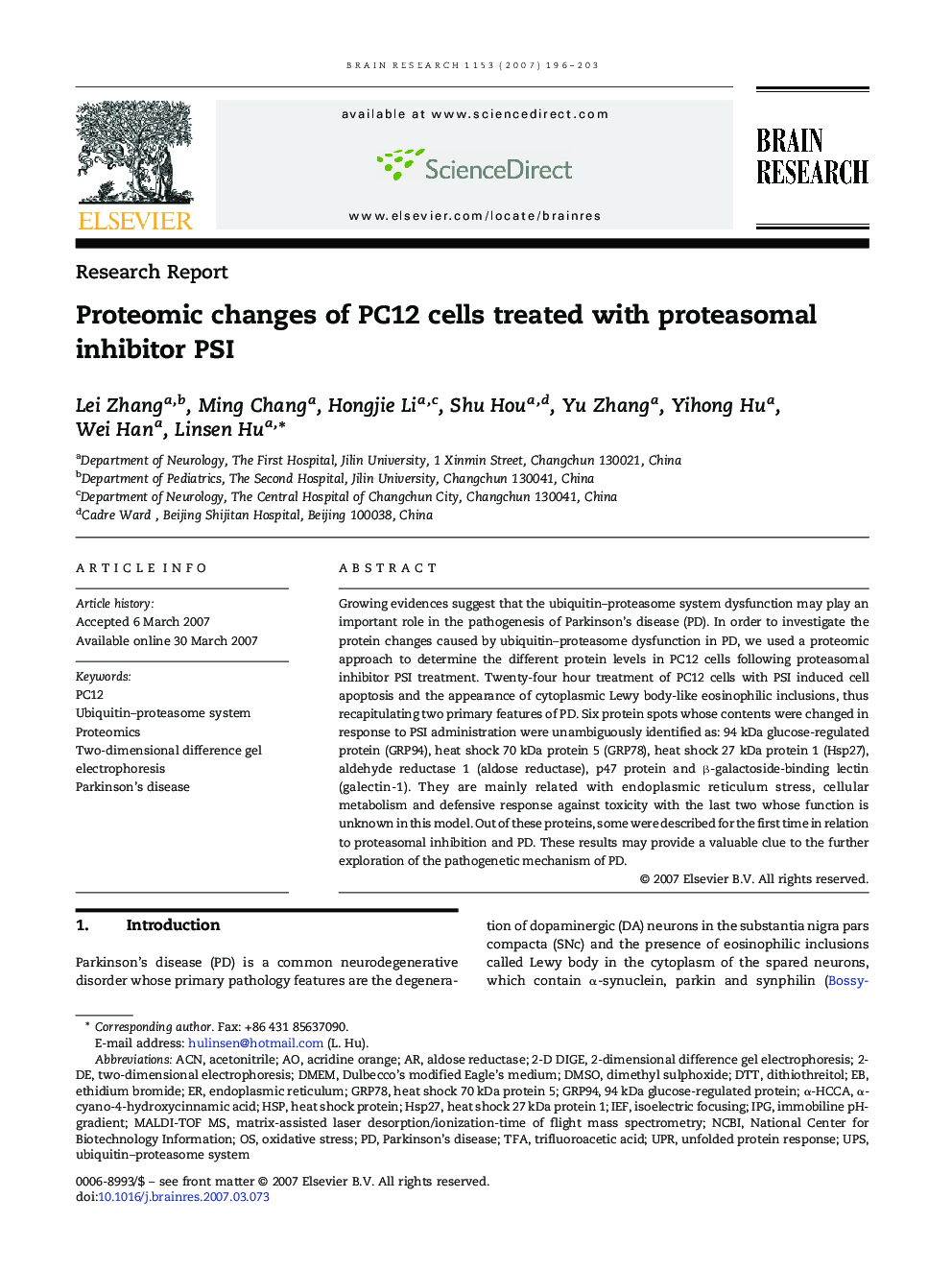| Article ID | Journal | Published Year | Pages | File Type |
|---|---|---|---|---|
| 4331093 | Brain Research | 2007 | 8 Pages |
Growing evidences suggest that the ubiquitin–proteasome system dysfunction may play an important role in the pathogenesis of Parkinson's disease (PD). In order to investigate the protein changes caused by ubiquitin–proteasome dysfunction in PD, we used a proteomic approach to determine the different protein levels in PC12 cells following proteasomal inhibitor PSI treatment. Twenty-four hour treatment of PC12 cells with PSI induced cell apoptosis and the appearance of cytoplasmic Lewy body-like eosinophilic inclusions, thus recapitulating two primary features of PD. Six protein spots whose contents were changed in response to PSI administration were unambiguously identified as: 94 kDa glucose-regulated protein (GRP94), heat shock 70 kDa protein 5 (GRP78), heat shock 27 kDa protein 1 (Hsp27), aldehyde reductase 1 (aldose reductase), p47 protein and β-galactoside-binding lectin (galectin-1). They are mainly related with endoplasmic reticulum stress, cellular metabolism and defensive response against toxicity with the last two whose function is unknown in this model. Out of these proteins, some were described for the first time in relation to proteasomal inhibition and PD. These results may provide a valuable clue to the further exploration of the pathogenetic mechanism of PD.
